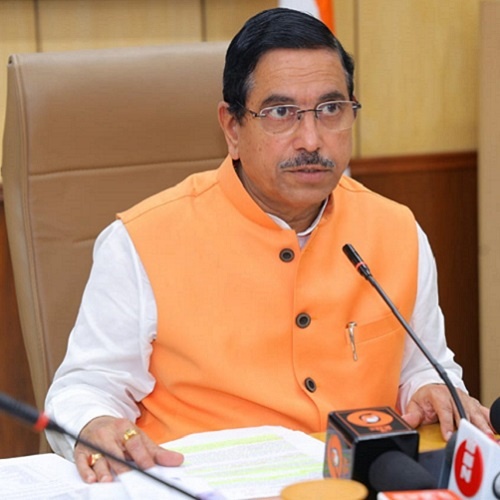Union Minister of New and Renewable Energy Pralhad Joshi on Thursday inaugurated the first Annual Green Hydrogen R&D Conference organised by the Ministry of New and Renewable Energy (MNRE) in New Delhi and announced a Rs 100 crore Call for Proposals to support start-ups working on hydrogen innovation.
The scheme will provide up to Rs 5 crore per project for pilot initiatives in hydrogen production, storage, transport, and utilisation technologies. At the event, 25 start-ups showcased their solutions, spanning electrolyser manufacturing, AI-driven optimisation, and biological hydrogen production, the ministry said.
Addressing researchers, start-ups, industry leaders, and policymakers, Joshi said the conference is about turning research into real-world solutions that can power industries, clean cities, and create lakhs of jobs across India. He highlighted Prime Minister Narendra Modi’s vision under the National Green Hydrogen Mission (NGHM), launched in 2023 with an outlay of Rs 19,744 crore, to make India a global hub for green hydrogen. The Mission focuses on four pillars: Policy and Regulation, Demand Creation, R&D and Innovation, and Enabling Infrastructure.
On the R&D front, Joshi informed that 23 projects have already been awarded in the first round of NGHM’s R&D Scheme, covering areas such as safety, biomass-based hydrogen, hydrogen applications, and alternative production routes. These are being implemented by IITs, IISERs, CSIR labs, and industry partners. The second round of proposals, launched on July 14, 2025, remains open till September 15, 2025. International collaboration is also growing, with over 30 joint proposals received under the EU-India Trade and Technology Council.
The minister pointed out that India’s green hydrogen journey is moving from “vision to action.” Key milestones include the launch of the country’s first port-based green hydrogen pilot project at V O Chidambaranar Port in Tamil Nadu; five steel sector pilots using hydrogen for decarbonisation; hydrogen-ready vessels and refuelling facilities at Tuticorin Port; hydrogen buses and refuelling stations in transport; and India’s first green ammonia auction, which discovered a record low price of Rs 49.75 per kg—down from Rs 100.28 per kg in 2024—with supplies set to begin at Paradeep Phosphates in Odisha.
He further highlighted enablers such as the Green Hydrogen Standard and Certification Scheme aligned with 140+ international standards, sanctioning of five testing facilities, certification of 5,600+ trainees, and regulatory waivers including transmission charge exemptions and faster clearances. Dedicated hydrogen hubs are being developed at Kandla, Paradip, and Tuticorin Ports to strengthen export competitiveness.
Joshi also noted that both major corporations—such as NTPC, Reliance, and IOCL—and MSMEs and start-ups are making large-scale investments in hydrogen, building a strong value chain and generating employment.
Reaffirming India’s targets under NGHM, he said the mission aims to achieve five million metric tonnes of annual green hydrogen production by 2030, backed by 125 GW of renewable capacity, Rs 8 lakh crore in investments, six lakh new jobs, and 50 million tonnes of annual CO₂ reduction.














